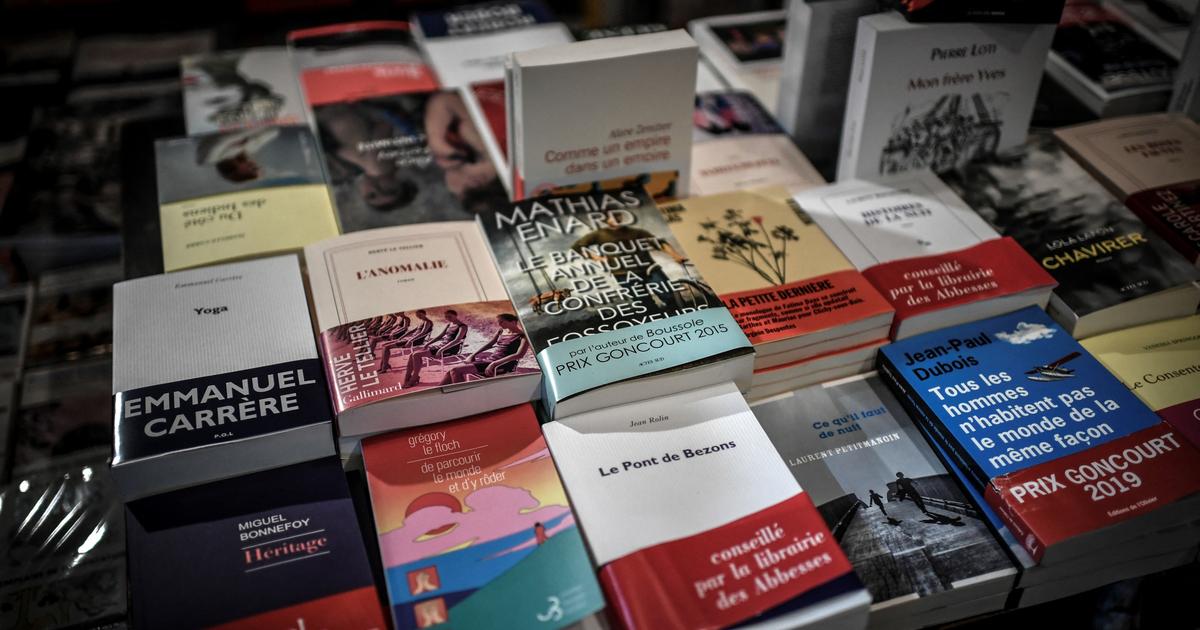Enlarge image
Sale at the weekly market: everyday goods are becoming unaffordable for some
Photo: Steffi Loos / Getty Images
Those who earn little can save less and have to spend most of their income on indispensable everyday goods.
For these people in particular, the extremely high consumer prices are becoming more and more of a burden.
About every seventh adult in Germany (15.2 percent) says they can hardly cover their living expenses, according to a recent survey by the opinion research institute YouGov on behalf of Postbank.
In the comparative survey in January, the proportion of those who stated that high inflation threatened their livelihood was still 11 percent.
Almost a quarter (23.6 percent) of those surveyed from households with a monthly net income of less than 2,500 euros now state that they are hardly able to cope with regular expenses due to higher prices.
In January, 17 percent of this group said so.
People limit themselves
“Incomes can hardly keep up with general inflation,” Postbank chief economist Marco Bargel analyzed the results of the survey.
»While wages and salaries in Germany rose by 3.6 percent compared to the previous year, the cost of living increased by 7.3 percent.
Middle-income households are also affected by the loss of real income.«
Two-thirds of the 2,144 respondents indicated that they had significantly or at least slightly reduced their spending due to rising prices.
The prospects are bleak
For months, energy prices have been driving up inflation both in Germany and in the euro area, and the war in Ukraine has exacerbated the trend.
The German Council of Economic Experts, the so-called “Economic Wise Men”, expects inflation in Germany to be 6.1 percent for 2022 as a whole.
In March, the annual inflation rate in Germany had shot up to 7.3 percent.
This is the highest rate of inflation in reunified Germany.
The last time the old federal states had such a high value was in November 1981.
Higher inflation rates reduce the purchasing power of consumers because they can then afford less for one euro.
According to the survey, more than every second person (53.4 percent) is very worried about the rising prices for goods and services.
Three months ago, 44 percent of those surveyed were concerned.
Economists do not expect inflation rates to ease in the coming months.
"In the short term, inflation could continue to rise from high levels because of high energy prices," agrees Postbank economist Bargel.
Six out of ten respondents (61.3 percent) would therefore like further support from the state.
In their opinion, the federal government's recently launched "relief package" is not enough to mitigate the consequences of inflation.
Among other things, the traffic light coalition had decided to reduce the energy tax for three months in order to make petrol and diesel cheaper.
In addition, employees receive a one-time energy subsidy of 300 euros on their gross salary and families receive a 100-euro bonus per child on the child allowance.
"The extent to which the measures taken are sufficient also depends on the further development of energy prices," says Bargel.
"From today's perspective, the additional household expenses for more expensive fuel and heating energy should not be fully absorbed, especially since individual population groups such as the non-employed benefit only partially."
The problem with the help packages
Economists warn that broad-based aid packages could have negative effects.
"You can't conjure up gas that doesn't exist by spending additional money," said the economist Friedrich Heinemann from the ZEW (Leibniz Center for European Economic Research) in the "Augsburger Allgemeine".
"The bazooka and populist aid for everyone is strongly discouraged," said the economic researcher.
Instead, "a very targeted policy" is required.
"Very precise aid" should come to the aid of poor households and energy-intensive companies "that would otherwise slide into bankruptcy as a result of Putin's war," suggested Heinemann.
Economist warns of devaluation of savings assets
The economist explained that oversized economic stimulus programs in the USA in particular have fueled inflation very strongly.
"The price-driving shortages of microchips and many internationally traded goods are also due to the global corona aid programs," said Heinemann.
"In a way, inflation is the price of a successful policy that has mitigated the Corona crash." The European Central Bank (ECB) must now jump over its own shadow and raise interest rates.
Heinemann sees the danger that savings and old-age provision will be particularly badly devalued as a result of inflation.
"The current surge in inflation could reduce the real value of financial assets that are invested with little or no interest by about ten percent," said Heinemann.
"For many, that could be a setback for old-age provision."
mmq/dpa/AFP












